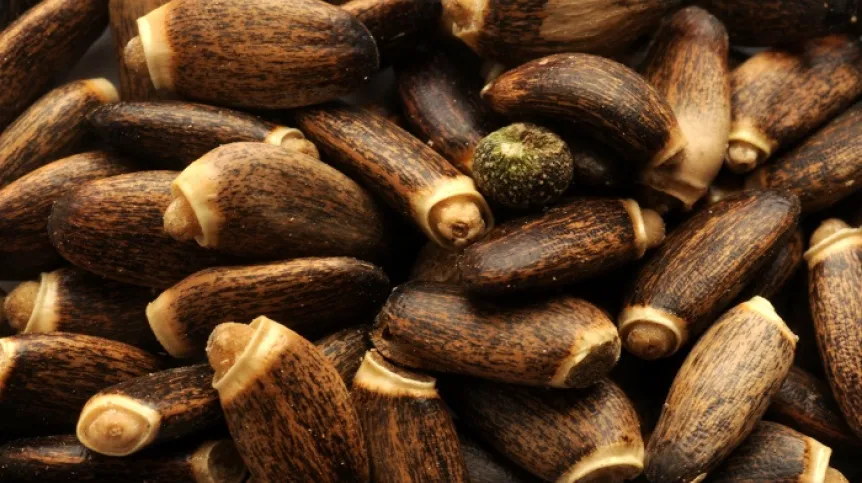
The seeds of plants such as hemp or milk thistle are more beneficial in mitigating obesity disorders than consuming the oil they produce, say researchers.
And according to the scientists from the Institute of Institute of Animal Reproduction and Food Research PAS in Olsztyn, this is confirmation that the more processed food is, the lower the benefits for the body from its consumption.
Polyunsaturated fatty acids (PUFAs) are considered to be among the most important food ingredients when it comes to its nutritional and pro-health value. The content of PUFAs in a daily diet, however, is usually insufficient and often combined with consuming them in an incorrect proportion, says the Institute’s Dr. Adam Jurgoński.
He said: “The degree to which the oil fraction rich in PUFAs is responsible for their beneficial properties, is a substantially unresolved issue,” adding that “seeds rich in PUFAs typically also contain significant amounts of protein, fibre or other chemical compounds, biologically active and specific for individual plants. All this may affect human health differently.”
Dr. Jurgoński's team investigated the pro-health properties of seeds of selected oilseed plant. The most important task of the scientists was to determine the role of the seeds' oil fraction in reducing metabolic disorders characteristic of obesity and related dietary diseases, including colon function disorders, oxidative stress and the body's lipid economy disorders.
Jurgoński said: “We showed a relatively high nutritional value of hemp and poppy seed proteins, close to the nutritional value of the soy protein. In animal research models, we also observed that regular consumption of seeds from some plants (hemp, flax, milk thistle, camelina) may be beneficial to health to a degree dependent on the amount, diet type and/or genetic conditions.”
The results primarily show that inclusion of seeds of some plants (hemp, milk thistle, camelina) in the diet relieves metabolic disorders associated with obesity much more effectively than including the oil diet of these seeds, the researcher reports.
In their research, the scientists also showed that diet supplementation with even a small amount of seeds of some plants (hemp and flax) can relieve metabolic disorders characteristic of obesity. In the case of a person with a weight of 75 kg, a daily dose of about 5.5 tablespoons is sufficient.
Jurgoński said: “Such supplementation can improve the function of the large intestine, including the fermentation processes necessary for its proper functioning, and improve antioxidant status and lipid metabolism in the body, including blood lipid profile.
“Partially skimmed hemp and flax seeds could be used to prevent some metabolic disorders associated with obesity, particularly disorders within the gastrointestinal tract and the antioxidant status of the body.
“Our results also indicate that in addition to a high PUFA content, seeds of some oilseed plants also contain other biologically active ingredients that have a decisive impact on the pro-health properties of these seeds, which can lead to isolating and/or identifying new therapeutic compounds.”
The new results may be of interest to food consumers and producers who are looking for alternative PUFA sources that at the same time are sources of high-quality plant protein and fibre. They can also form the basis for developing new dietary supplements, based on the skimmed form of tested seeds, available as a by-product of the oil industry.
The research was carried out as part of the National Science Centre grant.
PAP - Science in Poland, Agnieszka Kliks-Pudlik
akp/ zan/ kap/
tr. RL













